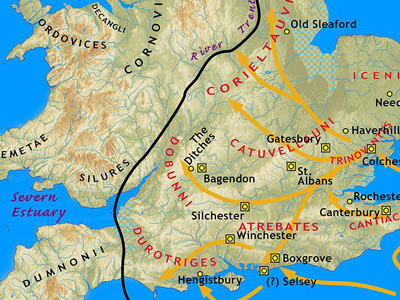Roman conquest of Britain (43-96 AD)
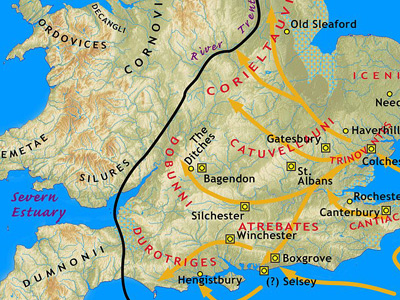
The Roman conquest of Britain was a gradual process, beginning effectively in AD 43 under Emperor Claudius, whose general Aulus Plautius served as first governor of Roman Britain (Latin: Britannia). Great Britain had already frequently been the target of invasions, planned and actual, by forces of the Roman Republic and Roman Empire The Roman Empire was the post-Republican period of ancient Rome. As a polity, it included large territorial holdings around the Mediterranean Sea in Europe, North Africa, and Western Asia, and was ruled by emperors. The first two centuries of the Roman Empire saw a period of unprecedented stability and prosperity known as the Pax Romana ('Roman Peace'). The Empire was later ruled by multiple emperors who shared control over the Western Roman Empire and the Eastern Roman Empire.. In common with other regions on the edge of the empire, Britain had enjoyed diplomatic and trading links with the Romans in the century since Julius Caesar
The Roman Empire was the post-Republican period of ancient Rome. As a polity, it included large territorial holdings around the Mediterranean Sea in Europe, North Africa, and Western Asia, and was ruled by emperors. The first two centuries of the Roman Empire saw a period of unprecedented stability and prosperity known as the Pax Romana ('Roman Peace'). The Empire was later ruled by multiple emperors who shared control over the Western Roman Empire and the Eastern Roman Empire.. In common with other regions on the edge of the empire, Britain had enjoyed diplomatic and trading links with the Romans in the century since Julius Caesar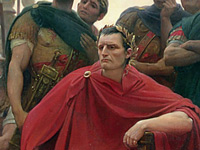 Julius Caesar (100-44 BC), was a Roman politician and general who played a critical role in the events that led to the demise of the Roman Republic and the rise of the Roman Empire. Caesar is considered by many historians to be one of the greatest military commanders in history. Julius Caesar »'s expeditions in 55 and 54 BC, and Roman economic and cultural influence was a significant part of the British late pre-Roman Iron Age, especially in the south.
Julius Caesar (100-44 BC), was a Roman politician and general who played a critical role in the events that led to the demise of the Roman Republic and the rise of the Roman Empire. Caesar is considered by many historians to be one of the greatest military commanders in history. Julius Caesar »'s expeditions in 55 and 54 BC, and Roman economic and cultural influence was a significant part of the British late pre-Roman Iron Age, especially in the south.
Between 55 BC and the 40s AD, the status quo of tribute, hostages, and client states without direct military occupation, begun by Caesar's invasions of Britain, largely remained intact. Augustus prepared invasions in 34 BC, 27 BC and 25 BC. The first and third were called off due to revolts elsewhere in the empire, the second because the Britons seemed ready to come to terms. According to Augustus's Res Gestae, two British kings, Dubnovellaunus and Tincomarus, fled to Rome as suppliants during his reign, and Strabo's Geography, written during this period, says that Britain paid more in customs and duties than could be raised by taxation if the island were conquered.
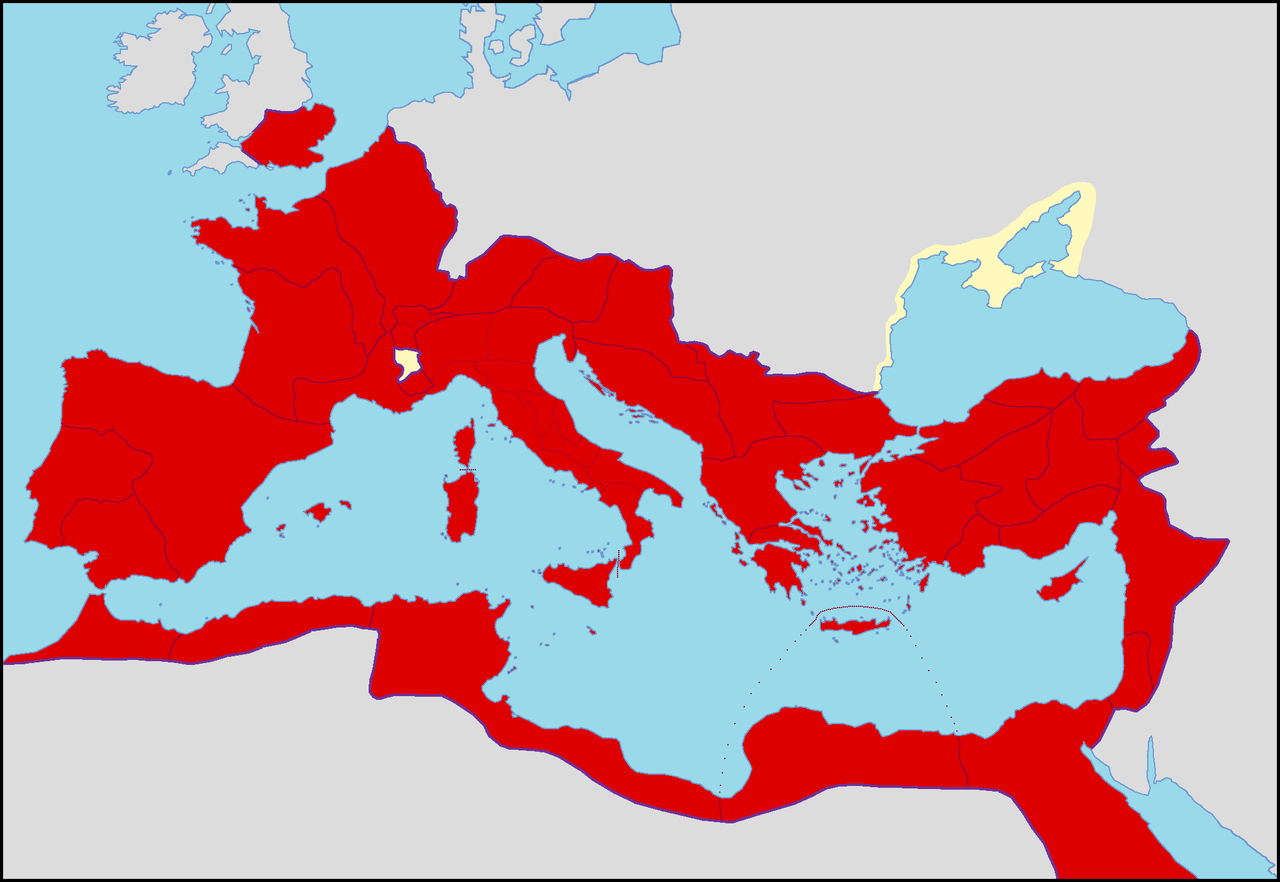
The Roman Empire in 54

The Roman Empire in 54
( Click image to enlarge)
By the 40s AD, the political situation within Britain was apparently in ferment. The Catuvellauni had displaced the Trinovantes as the most powerful kingdom in south-eastern Britain, taking over the former Trinovantian capital of Camulodunum (Colchester), and were pressing their neighbours the Atrebates, ruled by the descendants of Julius Caesar's former ally Commius.
Caligula planned a campaign against the Britons in 40, but its execution was bizarre: according to Suetonius' The Twelve Caesars, he drew up his troops in battle formation facing the English Channel and, once his forces had become quite confused, ordered them to gather seashells, referring to them as "plunder from the ocean due to the Capitol and the Palace".
Modern historians are unsure if that was meant to be an ironic punishment for the soldiers' mutiny or due to Caligula's derangement. Certainly this invasion attempt readied the troops and facilities that would make Claudius' invasion possible three years later. For example, Caligula built a lighthouse at Bononia (modern Boulogne-sur-Mer) that provided a model for the one built soon after at Dubris (Dover).
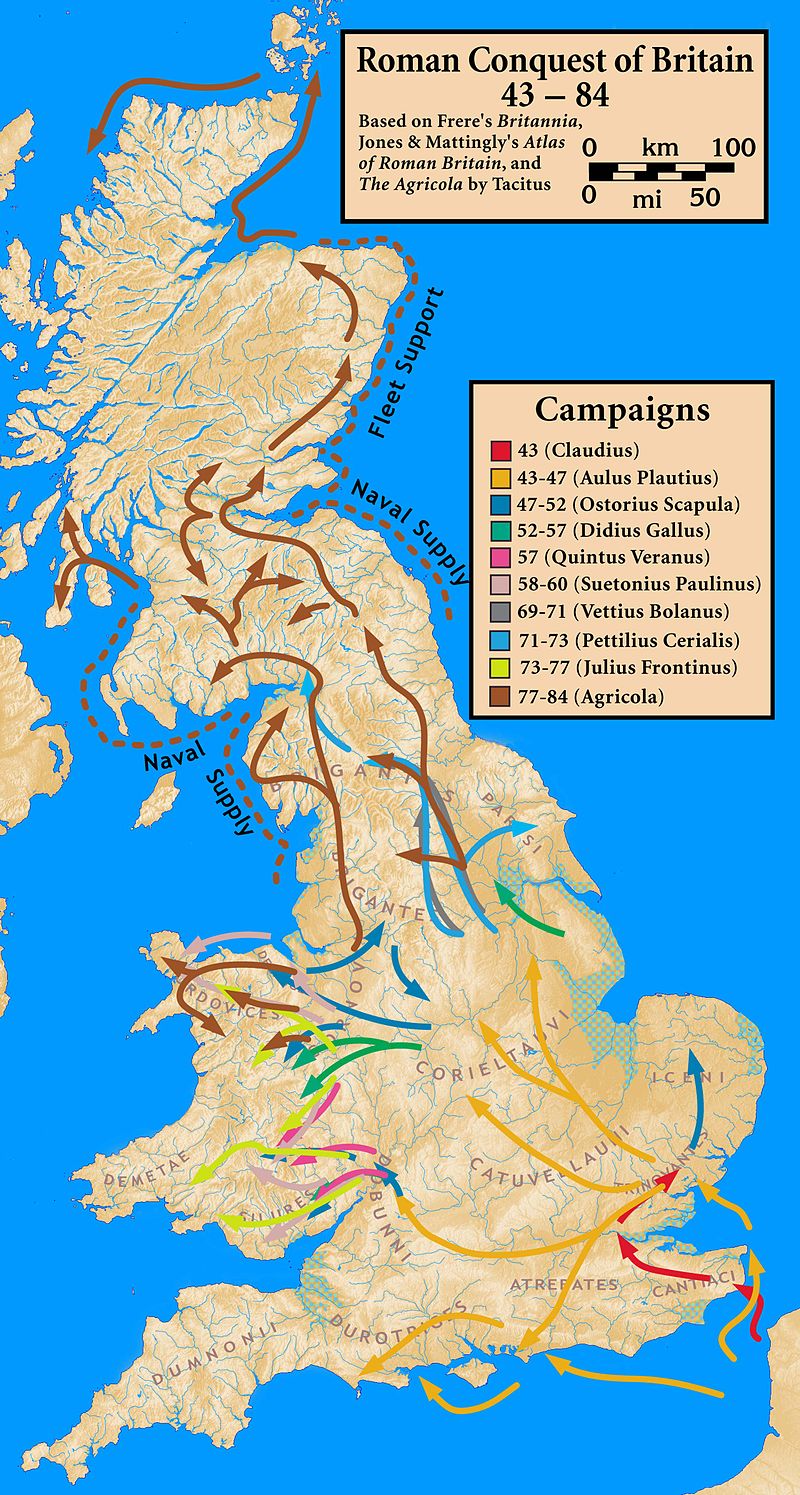
Campaigns in the Roman Conquest of Britain, 43 — 84
HISTORY
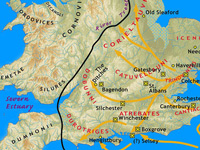
RESOURCES
This article uses material from the Wikipedia article "Roman conquest of Britain", which is released under the Creative Commons Attribution-Share-Alike License 3.0.
© Stories Preschool. All Rights Reserved.
